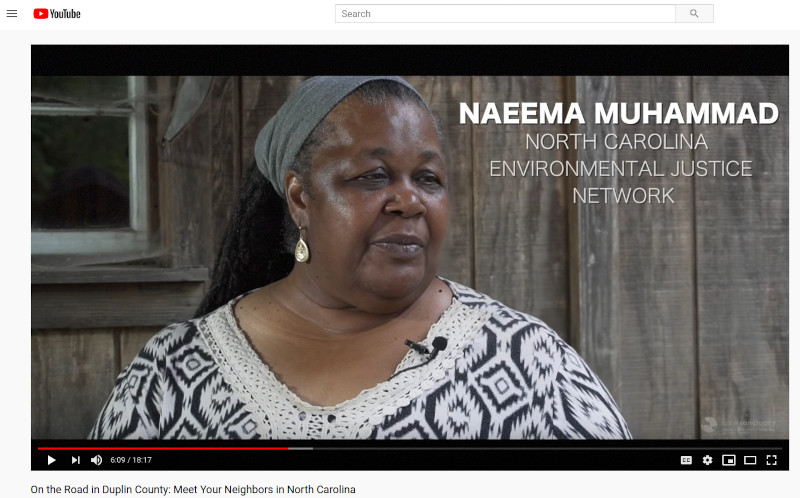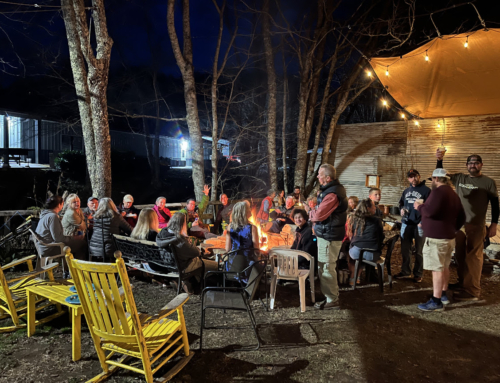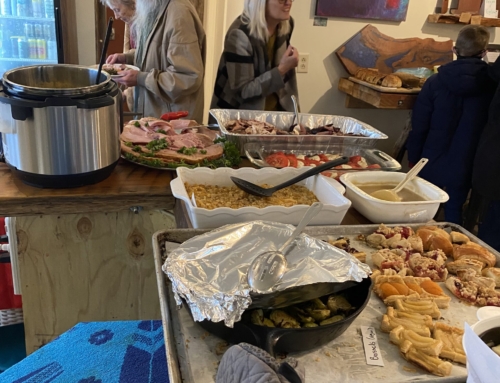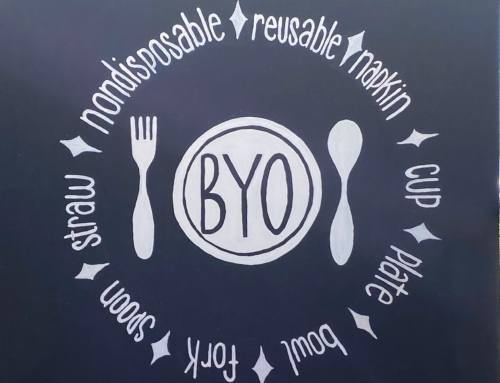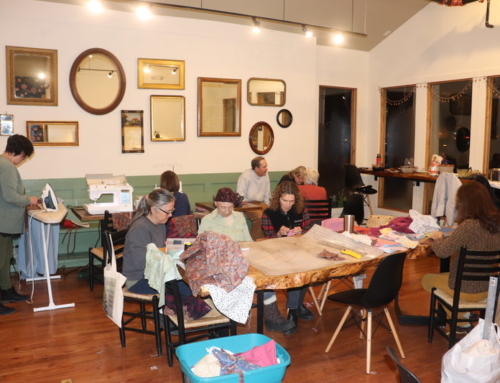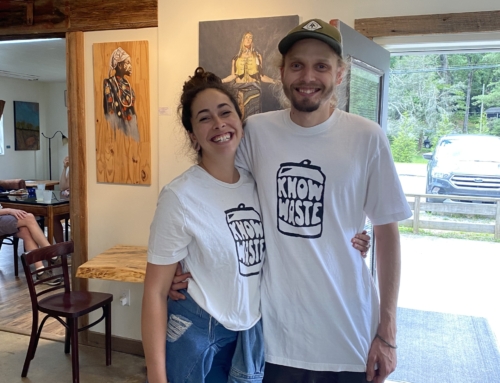John and I have decided we need to learn how we support systemic racism. We decided to start by looking at our food choices and that led us to ask a team of individuals in our community if they would help us learn about the impact of our food choices have on others. We also asked if they could guide us based on their expertise. Thus started the project Eating Consciously.
We decided to start a podcast with the project as a way to bring people closer together in our socially-distanced world. This is the second episode of the podcast and it goes over an hour. I interviewed Naeema Muhummad of the NC Environmental Justice Network. It was a tough interview to do. The stories she tells, and there are many, are hard to hear. Every part of the interview touched me and it made it difficult to cut out parts of the conversation. It is well worth a listen, in my humble opinion.
Naeema invited us to participate in the Network’s annual summit this year, being held virtually in October. Please listen to the episode and tell us what you think the next steps are. John and I plan to attend the summit and join together with the Network to help advance environmental justice.
Forward together.
CAFO Hog Industry Bailout Legislation in NC Recent Years:
-
2014 – House Bill 366 – “NC Farm Act of 2014”: Exempted records of environmental complaints about agricultural operations from our state’s public records laws. That means that if an environmental organization wishes to review complaints about a specific farm – the information is not accessible by doing a public records request unless DEQ decides to issue a notice of violation. The public won’t know if DEQ is reviewing and following up on complaints in a timely manner if that information is secret.
-
2017 – House Bill 467 “Agriculture and Forestry Nuisance Remedies”: primarily intended to limit the ability of North Carolinians to seek redress in the courts for harm caused by neighboring factory hog farms in North Carolina. Many of North Carolina’s large-scale hog operations store millions of gallons of hog waste in open-air lagoons. As permitted by state regulations, the waste is periodically sprayed onto fields, but can drift onto neighboring properties. Many North Carolina families, some of whose residence preceded a factory hog farm being built on neighboring property, report suffering from odors and fumes despite state regulations intended to address odor. House Bill 467 limited the discretion of judges to compensate these landowners in nuisance cases.
-
2018 – Senate Bill 711 – the so-called “Hog Farm Protection Act”: Altered state nuisances law to the detriment of property owners. Nuisance is one of the oldest claims known in law for the protection of private property rights. Hundreds of property owners are currently suing Smithfield for nuisance because of pollution and odors caused by Smithfield’s hogs in southeastern N.C.. This section appeared to be a reaction to these lawsuits. Added new language to statute that effectively shields agricultural and forestry operations from nuisance cases no matter whether they are consistent with industry practices and regulations. Disproportionately harmed low-income communities and those of color.
-
2020 – Senate Bill 315 – Farm Act: Section 11 of this bill props up outdated lagoon and sprayfields that the NC General Assembly voted to phase out years ago. In 2007, the General Assembly enacted a permanent ban on the construction of lagoons and sprayfields, and required all new and expanding production facilities to meet or exceed environmental performance standards that address the harmful water pollution and noxious odors emanating from industrial hog operations. Changes in this bill could pave the way for development of biogas, or swine waste-to-energy in a way that would entrench the use of the outdated lagoon and sprayfield system as a mainstay of North Carolina agriculture—a system that exacerbates environmental, civil rights and public health harms. This law is a step backward for all communities living near industrial hog and poultry operations and for the State, but especially for environmental justice communities.

